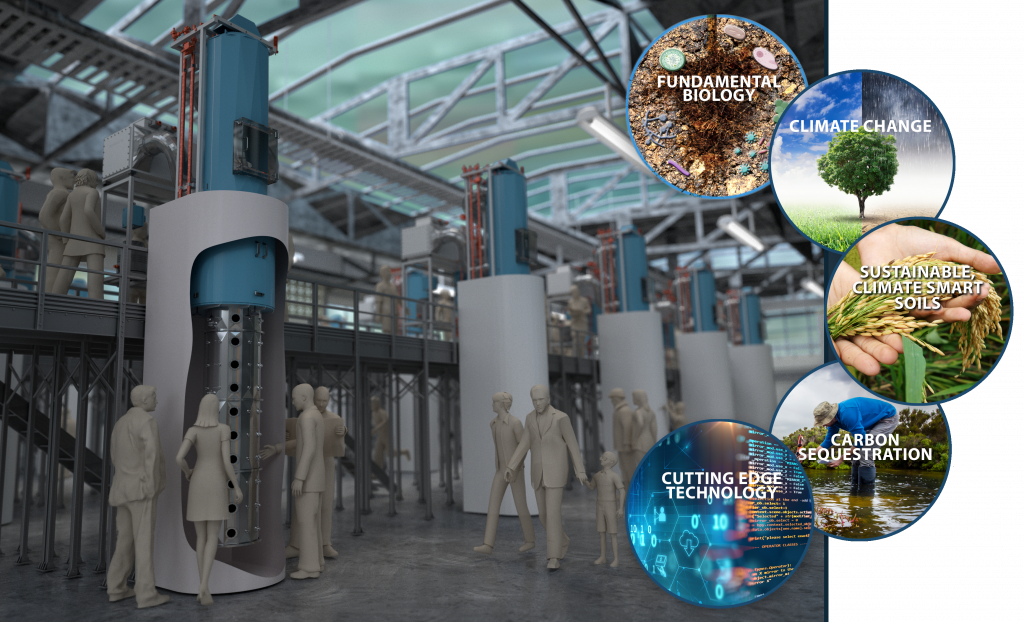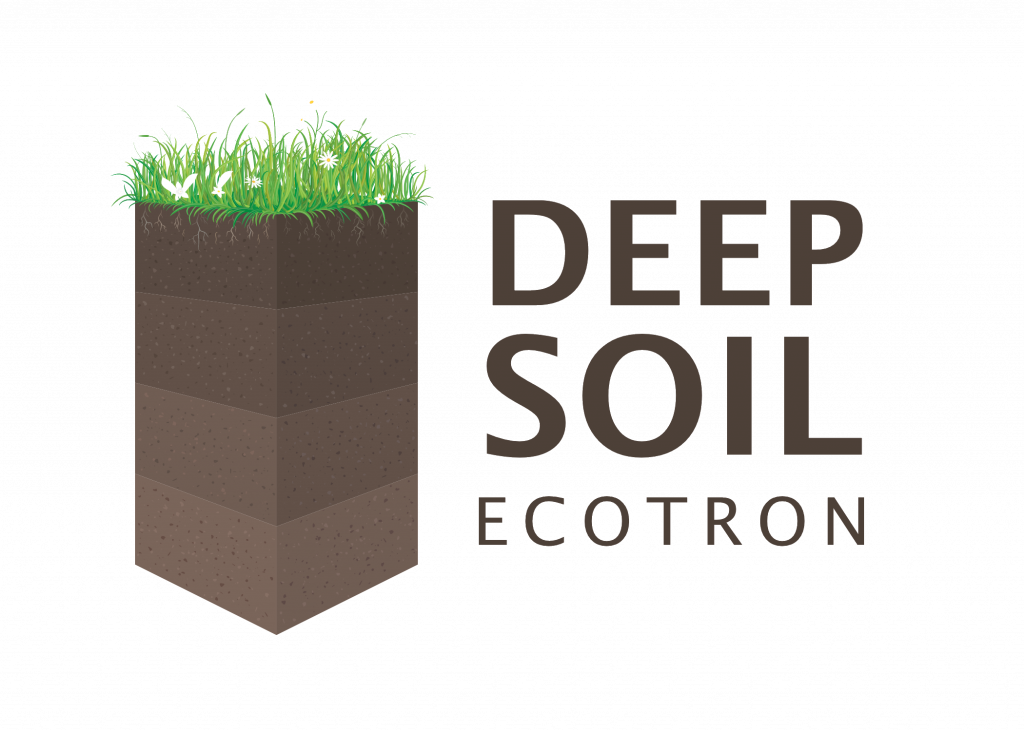Deep Soil Ecotron
Exploring belowground communities and ecosystem processes
What is the Deep Soil Ecotron?
The Deep Soil Ecotron (DSE) enables investigators to simultaneously manipulate both abiotic and biotic factors (e.g., climate, plant community, soil type) of subsurface soils to understand their impact on whole ecosystem processes and the soil-plant-atmosphere continuum.
This facility will lay the foundation for the next two decades of cutting-edge research on soils, ecology and biogeochemistry. It will also accelerate the development and testing of novel soil sensors and the development of soil data science as envisioned by the National Science Foundation’s (NSF) Signals in the Soil (SitS) program and increase research capacity across a network of NSF EPSCoR institutions.

The Need for a U.S. Ecotron Facility
The ecotron strikes a balance between two extremes, experimental control and realism. To address the need for an increased understanding of deep soil communities and ecosystem processes, the DSE facility will be developed at the University of Idaho and is the second only ecotron in the United States.
High Priority Research goals
The overarching research goal of the DSE is to understand the interrelationships between deep soil communities, processes, and their responses to environmental change – while also linking the knowledge gained to our broader understanding of whole ecosystems.
Benefits to the U.S. Community
The facility will serve as a hub, regionally and nationally, for research focused on belowground communities and processes, bringing together researchers, engineers, and developers from the private and public sectors. This will be the first facility of its kind in the world to explore the interaction between multiple factors and belowground biodiversity or global change factors on deep soil communities.
Meet the Team
PI’s
Co-PI’s
Scientific Advisory Board







